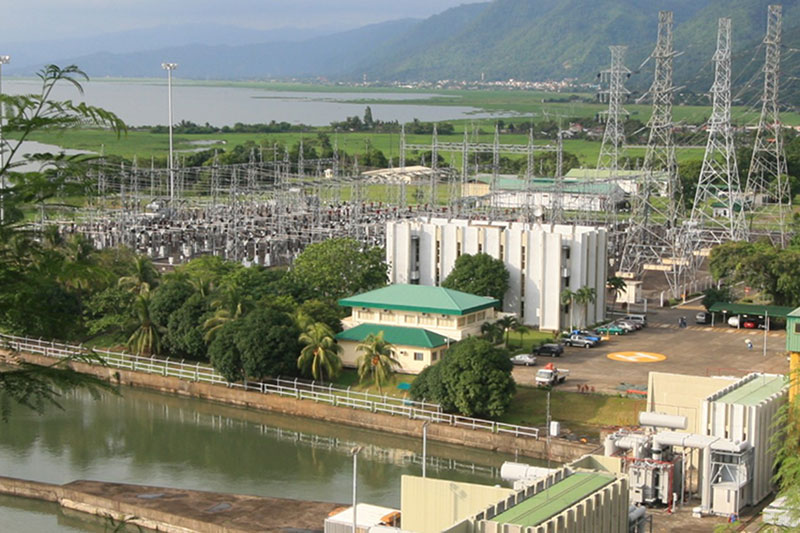
By Aubrey Rose A. Inosante, Reporter
THE DEPARTMENT of Finance (DoF) is looking to generate at least $200 million from the privatization of the Caliraya-Botocan-Kalayaan (CBK) hydroelectric power plant (HEPP) complex in Laguna.
“Pricing of CBK is anywhere from $200 million to $600 million (P11.14 billion to P33.43 billion) or higher depending on whether (Energy Regulatory Commission) will issue a price for the Kalayaan offtake,” Finance Undersecretary Catherine L. Fong told BusinessWorld in a Viber message.
The bidding price estimate came from the Asian Development Bank, the transaction advisor that helps the Power Sector Assets and Liabilities Management Corp. (PSALM) to monetize its asset.
Finance Secretary Ralph G. Recto earlier said CBK would likely generate at least P50 billion ($897.99 million).
PSALM is conducting a new bidding process for the 796.64-megawatt (MW) hydroelectric power plant complex, although it has yet to set a minimum bid price. The date for proposal submission is set for June 16.
Experts said the sale of the county’s only operational pumped-storage hydroelectric facility could depend on market appetite.
“Now for what the market is willing to pay is a different story and the beauty of open competition. NAIA (Ninoy Aquino International Airport) was a good example of the market willing to give more revenue share to government than expected,” Finance Assistant Secretary Michael Peter A. Alejandro said in a Viber message.
Globalinks Securities and Stocks, Inc. Head of Sales Trading Toby Allan C. Arce said market appetite for renewable energy assets, regional energy demands, and interest rate environments will decide the feasibility of the bidding price.
“The $200 million to $600 million range appears reasonable if the plant offers solid financial performance, a favorable market outlook, and strategic value to potential buyers. However, these factors must align to achieve a price at the higher end of the estimate,” he said in a Viber message.
Meanwhile, John Paolo R. Rivera, a senior research fellow at the Philippine Institute for Development Studies, said the proceeds from the potential sale of CBK can help ease the National Government’s fiscal pressures amid a widening deficit.
The National Government’s budget deficit ballooned to P478.8 billion in the first quarter, higher by 75.62% from the P272.6-billion gap in the same period in 2024.
Mr. Rivera said proceeds from the sale of CBK plants would help generate much-needed revenues for the government’s infrastructure projects and social programs.
“Ultimately, the sale should balance three objectives: fiscal relief, operational efficiency, and alignment with the country’s clean energy roadmap,” he said in a Viber message on Tuesday.
Mr. Arce also noted firms that are looking to expand their renewable energy offerings could be interested in making a bid for the CBK complex. Investors seeking long-term results could also be keen on participating in the rebidding.
San Miguel Global Power Holdings Corp., Prime Infrastructure Capital, Inc. and Hexa Philippines Holdings, Inc. have earlier expressed interest in participating in the rebidding for the CBK plants.
CBK is currently under a 25-year build-rehabilitate-operate-transfer contract and power purchase agreement between CBK Power Co. Ltd. and National Power Corp. that ends in February 2026.
The facility includes the 39.37-MW Caliraya in Lumban, 22.91-MW Botocan HEPP in Majayjay, and 366-MW Kalayaan I and 368.36-MW Kalayaan II pump storage power plants in Laguna.
BusinessWorld reached out to the Energy Regulatory Commission for comment, but no reply has been received so far.
PRIVATIZATION EFFORTSSeparately, Ms. Fong said the DoF’s Privatization and Management Office (PMO) office supports the planned P45.8-billion initial public offering of the Pangilinan-led water concessionaire Maynilad Water Services, Inc.
“We’re supporting that because it has the potential to bring in foreign direct investment, and of course, we always support the capital market,” she said.
In addition, Ms. Fong said the PMO is currently in the process of selling the Ecology Villages in Makati City to the occupants.
“There’s no closed sale yet because we’re dealing with the homeowners as a group. It’s still a long process. We’re determining the metes and bounds, we need to subdivide the title, negotiate on the common areas, etc. But it’s an ongoing process. We’re closely focused on this,” Ms. Fong said in mixed English and Filipino.
In February, the privatization office published its revised guidelines for auctioning government assets which allows unsolicited bids, particularly for small properties.
Ms. Fong earlier told reporters that there are 28,000 titles in the database, which include properties as small as 200 square meters, making the acquisition process attractive to ordinary citizens.
Asked if the privatization goal is still pegged at P101 billion, she said the this is a “fluid number.”
“We’ll have more clarity later when the other revenues come in. I always just try to sell as much as I can,” she said.
She also noted that these idle assets incur maintenance costs without generating economic value for the government.